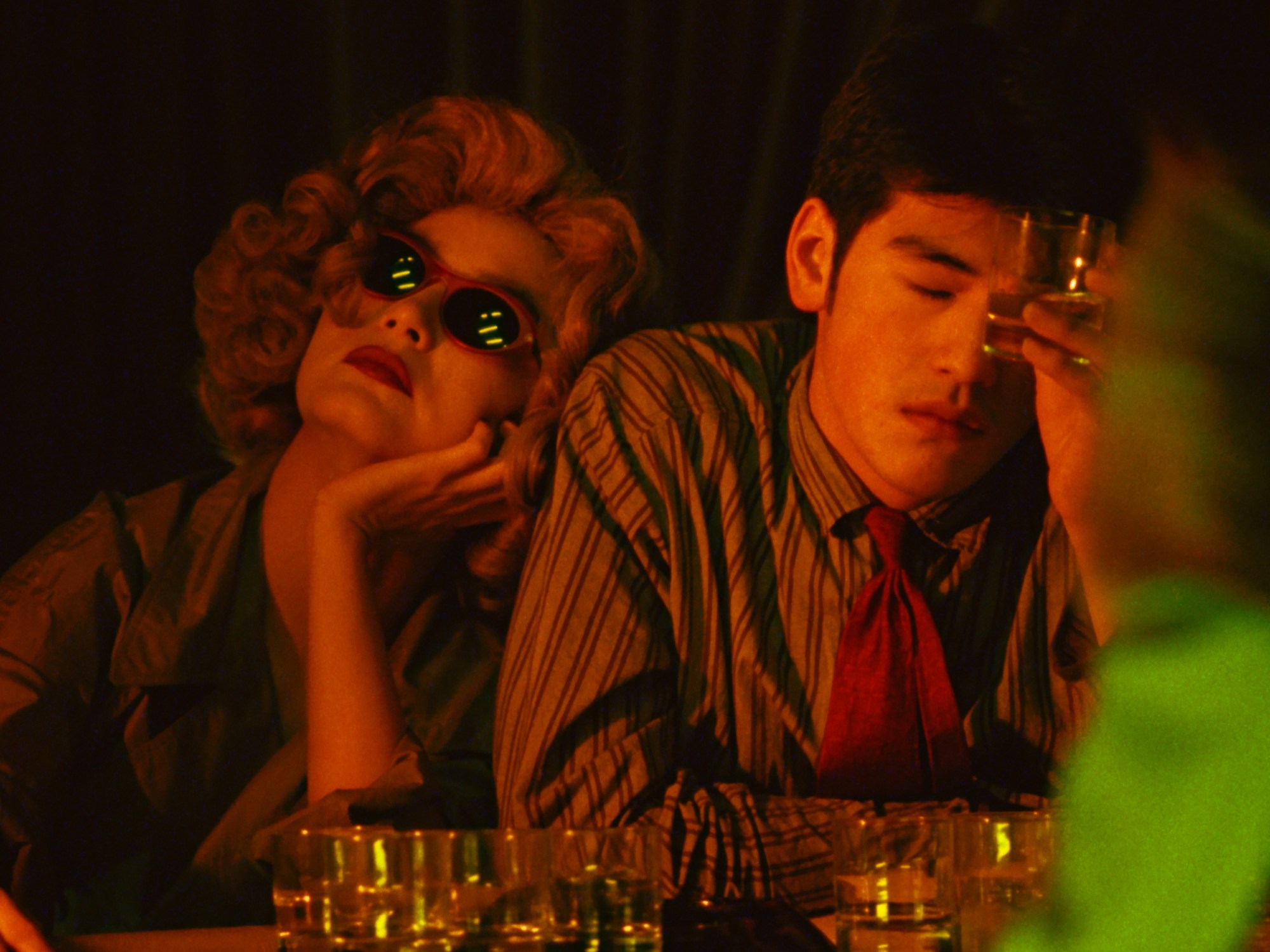Few directors are as invested in the emotional annihilation of their audience as Wong Kar-wai. The Hong Kong filmmaker is renowned for his seductive works about unspoken desire and the loneliness compounded by urban living. Though he’s dabbled in other genres to varying degrees of success (take his martial arts epics Ashes of Time and The Grandmaster, for example), it’s his love stories that have enraptured cinephiles across the globe. Along with his longtime cinematographer Christopher Doyle, he also pioneered a visual style that has inspired the legendary likes of Barry Jenkins and Alan Yang. With neon-soaked frames and seductive slow-motion, his movies depict love in all its euphoric and destructive glory: an all-consuming rush of blood to the head.
Wong is also a filmmaker whose work has been profoundly shaped by his home, Hong Kong, and the uncertainty its citizens have faced since the Handover of 1997, which put an end to Britain’s colonial rule. His stories are unabashedly fond of the past, and so many of his characters yearn for something that is gone, or doesn’t exist; ploughing on into a terrifying, unknowable future.
Now that Wong’s filmography has been restored in lush 4K, and his first TV series Blossoms Shanghai has launched in China, there isn’t a better time to introduce yourself to the work of this master. But with 10 esoteric features under his belt, it can be difficult to know where to begin. So, here are five movies to help you get acquainted with his singular vision.
The entry point is… Chungking Express
In 1995, six years after his debut, Wong made his breakthrough with this two-part movie about a pair of cops trying to recover from their respective break-ups. It contains the rich iconography that has defined the director’s brand of effortless cool — a manic pixie dream criminal in a blonde wig, The Mamas & The Papas’ “California Dreamin’” blasting in a fluorescent-hued cafe — but it’s also remarkable for representing the filmmaker at his lightest and most sincere. Arguably, none of Wong’s films are all that accessible to the casual, non-arthouse-obsessed viewer, but Chungking Express is maybe the closest you will get to a 90s rom-com — a genre that is just about everyone’s bag.
Necessary viewing? Happy Together
For this deceptively titled movie, Wong moved from Hong Kong to South America for his most acidic romance. Regulars Tony Leung and Leslie Cheung star as gay lovers who relocate to Argentina to mend their on-and-off relationship. Unable to afford the return ticket, the pair find themselves trapped in unfamiliar territory, an apt metaphor for the displacement of living in a Hong Kong in flux during the 1997 Handover — especially considering that the movie was released the same year. Wong received the Best Director prize at the Cannes Film Festival for this frenetic portrait of love at its most volatile. Beyond the searing queer love story at its centre, Happy Together is essential viewing; a reflection of a filmmaker discovering what home really means.
The one everyone’s seen is… In the Mood for Love
Considered not only the crowning jewel of Wong’s filmography, but one of the best films of all time, In the Mood for Love builds on the familiar themes of hidden desire to achieve new heights. Starring frequent collaborators Maggie Cheung and Tony Leung, the film follows two neighbours who discover that their spouses are cheating on them with each other. As their partners continue with their infidelity, they find comfort in each other, but are unable to act on their own blossoming feelings. Wrestling with the mixed emotions of duty to a crumbling relationship and the heartbreak of unfulfilled potential, In the Mood for Love is intoxicatingly romantic and intimate, even with the knowledge that this friendship can’t be anything more than platonic.
The underappreciated gem is… My Blueberry Nights
Having found critical success with arthouse audiences, Wong expanded his canvas to the American frontier with a much-maligned English-language debut in 2008. The story follows a waitress (Norah Jones) who travels cross-country to mend her broken heart and falls in love with her Mancunian pen pal (Jude Law) in the process. My Blueberry Nights is, in short, a Marmite movie — a movie you’ll either detest or defend with your whole heart. On release, it was panned, but with 13 years of hindsight, there’s something oddly charming about Wong’s naive romanticism of the US, especially in comparison to its dreary reality. Above all, the director’s works are achingly sincere poetry put to screen, and My Blueberry Nights is exactly the heart-on-your-sleeve kind of movie that he’s always made. It deserved better, IMO.
The deep cut is… Days of Being Wild
Wong newbies may not know that In the Mood for Love is actually a sequel… sort of. It’s one third of an informal trilogy alongside the sci-fi trip 2046, and the filmmaker’s sophomore feature, Days of Being Wild, which sees Leslie Cheung play a restless playboy embarking on a search for his birth mother. The story also fragments to follow the women whose hearts he broke, taking the perspectives of people suffocated by isolation and longing for connection. The movie is particularly noteworthy for being the first collaboration between Wong and cinematographer Christopher Doyle, who introduced the dreamy, saturated colour palette and kinetic energy that has become a defining feature of the director’s work. As one of Wong Kar Wai’s earliest works (released in 1990), Days of Being Wild marked the beginning of something truly special.
World of Wong Kar-wai by Criterion is released on 23 March. The BFI and ICA will launch a Wong Kar-wai season this month, streamable here.


